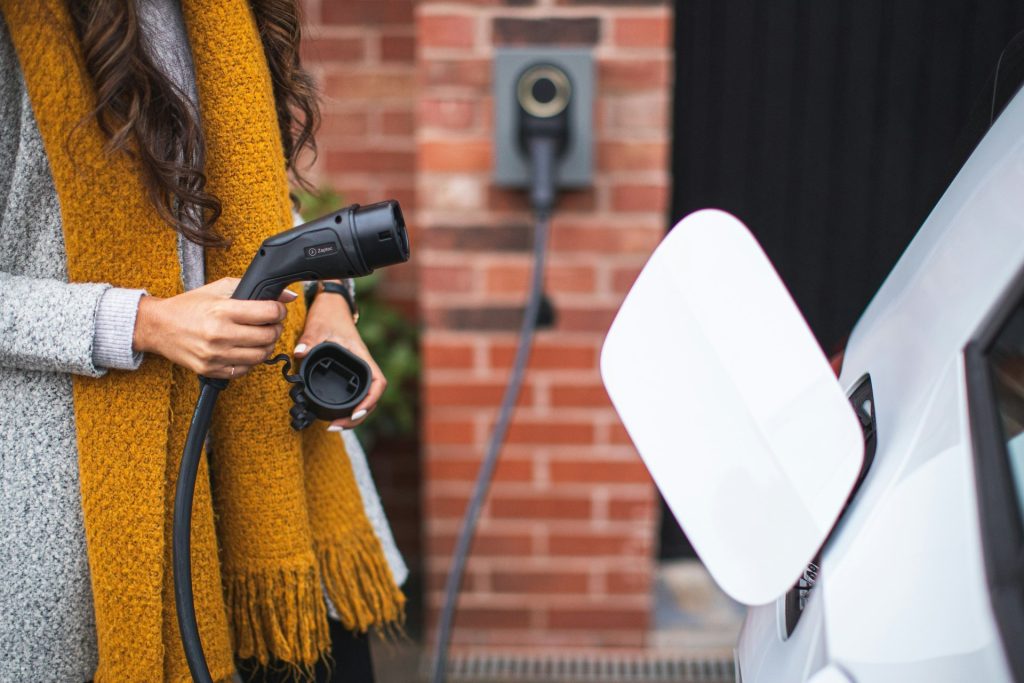Everything You Need to Know About Installing an EV Charger – Daily Business

I’ve been around electric vehicles long enough to see them go from a rarity to a regular sight on the road. If you’ve got one, you’re probably tired of hunting for public chargers that are either too far, too busy, or just not cutting it. That’s where installing EV chargers at home or work comes in. It’s a game-changer, and I’m here to walk you through it. After talking to installers and digging into the details, I’ve got a solid handle on what it takes.
Here’s what you need to know about setting up EV chargers in 2025 costs, options, and all the rest.

 Photo by Zaptec on Unsplash
Photo by Zaptec on UnsplashWhy Bother with EV Chargers?
Let’s be honest: relying on public stations gets old fast. They’re not always where you need them, and waiting around isn’t exactly fun. Installing an EV charger at home means you’re in control of faster charging, no lines, and it’s right there when you need it. I’m talking about cutting a full charge from half a day with that basic cord to 4-6 hours with a proper setup.
Plus, electricity’s usually cheaper than gas, especially if you charge at night when rates drop. For businesses, it’s a draw that customers or employees with EVs will stick around if you’ve got EV chargers. It’s practical, not flashy.
Which EV Charger Fits Your Life?
Not every charger’s the same, and it’s worth knowing your options. Here’s what I’ve found:
Level 1 Chargers: These plug into a regular 120-volt outlet in your car’s standard cord. You’ll get 4-5 miles of range per hour. It’s fine if you barely drive or can wait overnight, and it’s free if you’ve got a socket handy.
Level 2 Chargers: These use 240 volts like your dryer and pump out 20-60 miles an hour, depending on the model and your car. Most people go this route; it’s quick enough for daily use without being overkill.
DC Fast Chargers: Super fast, but they’re a commercial thing too expensive and power-hungry for home use.
From what I’ve seen, Level 2 EV chargers are the best bet for most folks with speed and value in one package.
What’s It Going to Cost?
Money’s the big question, right? A Level 1 setup won’t cost you much if you’ve already got an outlet. For Level 2 EV chargers, you’re looking at $300-$700 for the unit itself, fancier ones with apps or adjustable settings push the higher end. Installation’s where it adds up $500-$2,000. If your electrical panel’s close and up to date, you’re golden. If it’s across the house or needs a boost, you’re spending more.
In 2025, you can grab a 30% federal tax credit up to $1,000 for homes and some states throw in $200-$500 extra. Businesses might snag even better deals. It’s not cheap upfront, but it evens out.
How Installation Works
Don’t try this yourself unless you’re an electrician I wouldn’t, and I’ve fixed plenty around the house. Start with your power setup; Level 2 EV chargers need a 240-volt line, and older places might need some work. Get an electrician to take a look and they’ll tell you what’s what. Pick your charger, then hire someone good.
Permits are usually a must; the pros I’ve talked to handle that, but check your local rules. The job’s pretty quick: run some conduit, mount the unit, hook it to your panel, and you’re done in a day or two. If you’re renting or in a condo, talk to whoever’s in charge first. It’s straightforward if you plan it out.
Little Things That Matter
A few details can make a difference. Here’s what I’d watch:
Where It Goes: Put EV chargers near your parking spot garage or driveway, maybe under a roof to keep weather off.
Cable Reach: Most come with 18-25 feet; measure so it hits your car’s port without stretching.
When to Charge: Nighttime’s cheaper if your utility has off-peak rates some EV chargers let you set a timer.
Miss these, and you’re either annoyed or out a few bucks.
Sorting Out the Myths
People say a lot about EV chargers that don’t hold up. My take:
Your bill’s going to soar: Nope charge when rates are low, and it’s often less than gas.
Only for big houses: Not true apartments or small places can make it work with the right setup.
It’s a huge hassle: It’s not pros knock it out fast if you’ve got the basics covered.
I’ve heard it all, and the reality’s a lot simpler.
The Bigger Picture
Installing EV chargers isn’t just about you, it’s part of something broader. EVs are cleaner than gas guzzlers, and every charger helps that along. Businesses look sharp offering them; homeowners show they’re thinking ahead. It’s a small step toward less pollution and less oil, and it’s picking up steam in 2025.
Conclusion
EV chargers bring speed, savings, and a piece of the future to your doorstep. You’ll spend $800-$2,700 to start, but credits and rebates soften the blow, and the payoff lasts. Figure out what you need, find a good electrician, and cash in on those incentives. It’s not just a charger, it’s a smarter way to roll. Want in? Call a local installer and get it going.
#Installing #Charger #Daily #Business





